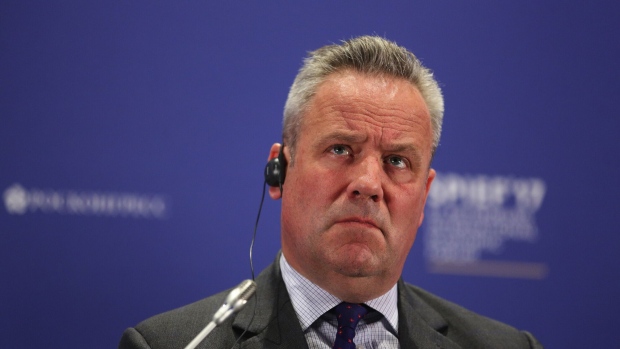Mar 28, 2024
Thames Water Seeks Its Next Move With No Easy Options in View
, Bloomberg News

(Bloomberg) -- The future of the UK’s largest water and sewage company, Thames Water Utilities Ltd., was thrown in doubt on Thursday after shareholders declared the company is “uninvestable” under the current regulatory regime.
Shareholders refused to inject a long-awaited £500 million ($632 million) of equity after the regulator indicated there was no leeway on the terms for the company’s investment plan.
At stake is the operations of a company that supplies 25% of England with water, including London. The money was supposed to be the first tranche of £750 million promised by this time next year. In total Thames needs £2.5 billion in equity to deliver on its plans out to the end of the decade.
The lack of fresh funds raises troubling questions, from how Thames will invest in much needed repairs and infrastructure to ultimately, whether it may need to be temporarily nationalized. The government in an election year will likely seek to keep it at arms length, while key shareholders are losing money and may be reluctant to throw in more, no matter how adverse the circumstances. It’s a situation fraught with uncertainty, but here are some potential scenarios of what’s likely to come next:
Special Administration
Nobody wants it but temporary nationalization is firmly on the horizon. If Thames can’t find additional equity on the private market, the government may be forced to apply to the courts to trigger insolvency proceedings, bringing Thames into special administration.
The government already considered this option last year and officials have recently updated water company insolvency laws. Neither political party want to see this option as it would require them to invest billions of pounds in Thames Water that they’d like to spend elsewhere.
On Thursday, Weston said special administration is some way off. The question is whether it would be a problem for this government, or the next.
“Like any company needing to secure new investment there are a wide range of options available to water companies, including the injection of new equity from any prospective investors,” a government spokesperson said. “Ofwat, as the financial regulator of the water sector, continues to engage with Thames Water to improve its financial resilience.”
A Sale of Thames Water
Parent company Kemble Water Holdings Ltd. says the lack of funding means it will now be unable to refinance or repay a £190 million loan which matures on April 30 unless an extension is granted by lenders. This could potentially make Kemble insolvent and leave Thames without an owner.
A white knight may decide to pledge some new investment or, if it’s up for sale, buy Thames Water cheaply. But an investor would have to stump up the billions needed to improve the company’s performance.
This may be an unappealing option given that Kemble’s nine investors have already declared Thames Water an uninvestable proposition under current regulatory requirements.
An Existing Shareholder Wipes Out Others
The nine current investors are a mixed bag, including a Canadian pension fund, the Universities Superannuation Scheme Ltd, China Investment Corp. and a subsidiary of the Abu Dhabi sovereign wealth fund.
It’s possible that one of the larger shareholders could decide to go it alone and inject the equity needed. That would give full control of Thames, buying out other investors.
This may be a more attractive proposition for some of the later investors such as Ontario Municipal Employees Retirement System, Omers, or USS, that need a turnaround in the company to see any return on their investment.
But in this scenario, the shareholder would still be lumbered with Kemble’s own debt, which is over £1 billion. To leapfrog the creditors, the shareholder could invest directly into the regulated utility Thames Water instead of into Kemble. But this would be a riskier option as they would be brought into the regulated asset and could be vulnerable to nationalization through the government’s special administration regime.
IPO
Thames chief executive Chris Weston on Thursday said the company is now exploring all possible options to raise the cash needed to fund its investment plans.
The next significant date will be June 12, when regulator Ofwat is due to provide its first public draft determination on all water companies investment plans for the five years to 2030. So far all feedback from Ofwat to shareholders has been given privately.
Weston said Thames could “go to the market” once it has the Ofwat document. That could include listing the company on the stock market. While the IPO might be a struggle, having Thames publicly listed could be a better option in the long run. Industry observers have long maintained that publicly listed water companies, Severn Trent and United Utilities, perform better than their privately-held peers.
--With assistance from Ellen Milligan and Abhinav Ramnarayan.
©2024 Bloomberg L.P.





